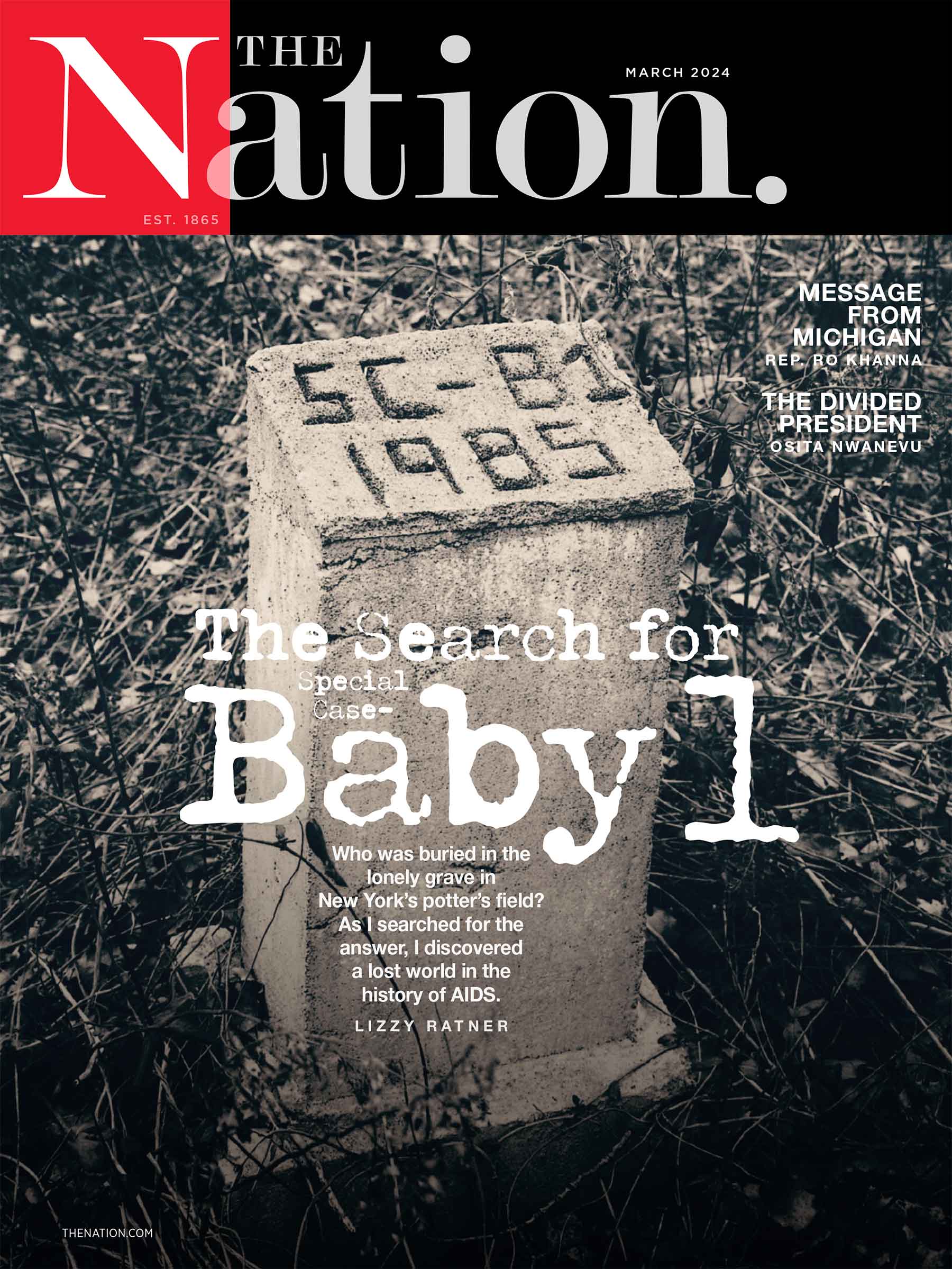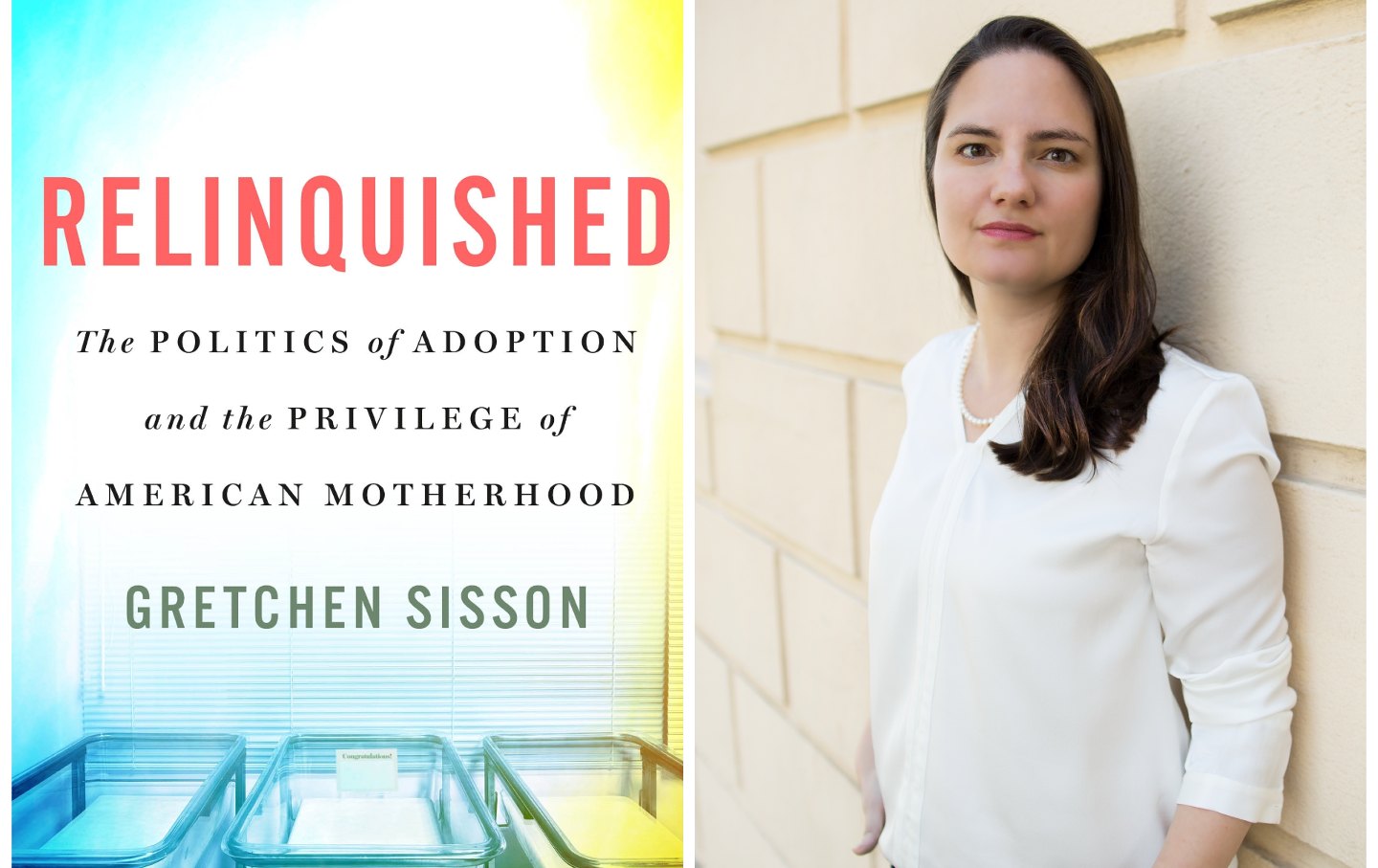After Texas’s DEI Ban, College Students Are Reconsidering State Schools
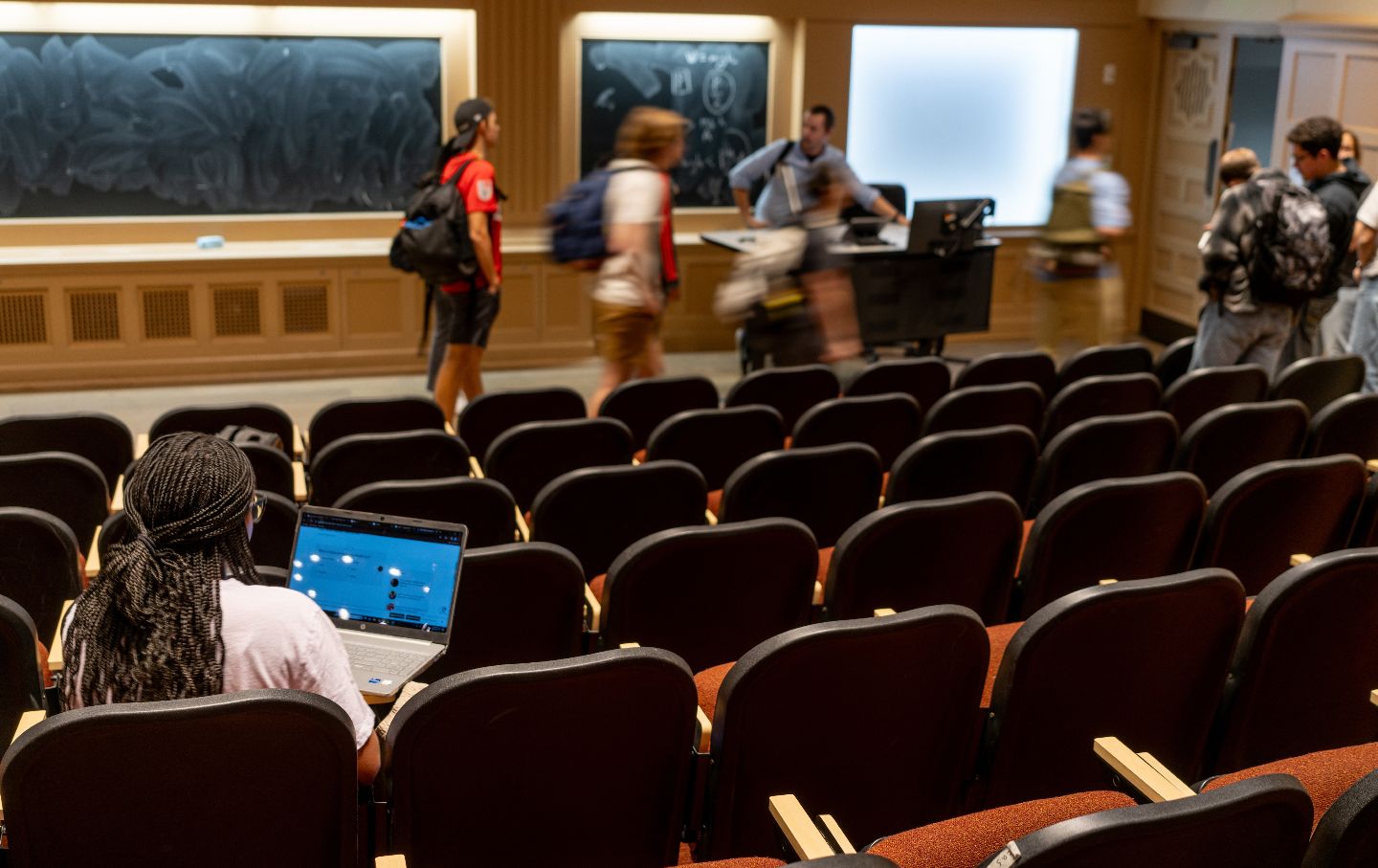
[ad_1]
In June, Governor Greg Abbott signed a law banning diversity, equity, and inclusion programs in the state university system—including multicultural centers and campus identity groups.

A student student sits in a lecture hall while class is being dismissed at the University of Texas at Austin.
(Brandon Bell / Getty)
In 2023, the Texas Legislature passed SB 16, banning the teaching of critical race theory at Texas universities. Among the right, CRT has become a scapegoat, with legislators railing against public schools’ teaching the history and legacy of racial injustice in the United States.
Now, Texas politicians have gone even further, targeting diversity, equity, and inclusion (DEI) programs in state colleges.
SB 17, which went into effect January 1, has been a ticking time bomb since it was signed by Governor Greg Abbott in June. The bill bans DEI and its programs, clubs, and organizations within the University of Texas college system, the largest university system in the state with more than 250,000 enrolled students and 21,000 faculty.
During the months-long transition period, UT schools had to close down multicultural centers and realign their practices to comply with SB 17, remove specialized inclusion programs, and defund campus identity groups. Two months after the law went into effect, prospective students are reconsidering what these universities can do for them.
In an e-mail to students on January 23, the director of the Multicultural Engagement Center, Brandelyn Flunder, said that “our doors remain open (for now at least), our programs do not.” The e-mail also shared the loss of several special campus activities like New Black Student Weekend, Adelante, CultivAsian, and graduation ceremonies for Black, Latinx, and Asian students.
“The MEC, an office where many students of color would go to meet with friends, study, talk to their advisers, and where many of the organizations that garnered safe spaces for students of color would meet and stash their things is now closed,” said Katherine Ospina, a senior at the university studying International Relations, and the director of Latinx Community Affairs. “This was the one place I would go to get work done every day, and there was a collective sentiment of relaxation past those doors. My experience at UT has changed drastically as a result of this bill.”
“It seems as though we are taking a step back in reforming an ideal, equitable society,” says Samantha Alvarez, a freshman at UT Austin studying Public Relations. “Coming from a family of immigrants, knowing UT eliminated a scholarship program for undocumented students is both frustrating and saddening.”
In a joint statement on February 2, five community organizations at UT Austin shared how shutting down the engagement center was “part of a larger pattern of over-compliance of SB 17 at the hands of UT Administration.” According to the statement, the center, which was originally supposed to remain open and to restructure, was “wrongfully” shut down.
“These acts push the idea that our spaces are invalid, that our communities are illegal, and that the people in these organizations exclude anyone,” says Xochimilo Vazquez, a junior at UT studying psychology and government and the community engagement chair of the Native American & Indigenous Collective. “This also endangers my friends, family, and peers. Why should I have to take into consideration my safety when applying to a higher academic institution that boasts about being an intellectually pioneering institution? What intellectually pioneering institution ever led with racism?”
Following the bill’s passage, these organizations were informed that they would no longer be allowed to continue operating as sponsored student organizations. Former UT clubs, which were once reliant on annual funding from the university, have started seeking donations to continue operating.
At UT Dallas, the second largest UT school, the bill eliminated the Office of Diversity Equity, and Inclusion and created a new Office of Campus Resources and Support. The ODRS “is entirely separate and will lead activities that are SB 17 compliant,” according to their website. “As a new entity, the entire scope of OCRS is still being determined.”
“These clubs provided a sense of community where I could connect with others who shared similar experiences and cultural backgrounds,” says Sahil Lalani, a freshman studying business administration. “The closure of these vital spaces would have influenced my decision-making when considering Texas colleges.”
“I would not have worked in admissions if the metrics in place were the same two years back,” says Ospina, who also works as a student recruiter. In high school, she says, she would have been reluctant to apply to the university if these bills had been passed. “The idea of staying here post-graduation is extremely narrow.”
For current high school seniors in the state who are considering attending colleges within the UT system, this legislation has clouded their decisions. “I anticipate SB17 definitely affecting the decisions some students make regarding post-secondary education options, especially POC university enrollment in the state, specifically those who seek a more inclusive environment to attain their education,” said Nancy Sutherland, a high school counselor in Texas.
Popular
“swipe left below to view more authors”Swipe →
“Eliminating DEI offices as a whole strips away many potential students’ motivation to attend higher education,” says Haala Tariq, a high school senior in Houston. “One of my goals was to explore the cross-sections between marginalized communities and the conventional healthcare system. Senate Bill 17 will make it harder for the university to receive research funding from organizations that consider commitments to diversity when awarding grants.”
“The elimination of DEI on college campuses may lead to less cultural awareness and political participation as well as a decline in resources for people of different backgrounds,” said Sutherland. “Without DEI resources, this could potentially result in a decline in student success, and ability to perform in a global environment, particularly for minority populations.”
“I wanted to send my child and my nephews to the University of Texas, but now I don’t know,” says Dr. LaShawn Washington, who did her Master’s and Bachelor’s at UT Austin and worked at the Division of Diversity and Community Engagement as a student. “SB 17 is based on the argument that DEI doesn’t work, but a lot of these people are white conservatives, or it is conservative political think tanks making arguments about something that wasn’t made to serve them,” said Washington.
“I fear Texas has taken a big step away from the celebration of equality,” says Alyssa Perez, a high school senior who was recently accepted into UT Austin and UT El Paso. “And I fear what other freedoms they can take away.”
While Perez is choosing to attend a school in-state because of financial constraints, other high school seniors are willing to take the hit economically for a more fulfilling college experience outside of Texas. “I feel unsafe with our political climate, so much so that I’ve essentially resigned myself to debt and student loan stress,” says Greg Rico, a transgender high school senior from Texas. “I applied to two Texas public schools, but I don’t plan on attending either of them.”
Thank you for reading The Nation!
We hope you enjoyed the story you just read. It takes a dedicated team to publish timely, deeply researched pieces like this one. For over 150 years, The Nation has stood for truth, justice, and democracy. Today, in a time of media austerity, articles like the one you just read are vital ways to speak truth to power and cover issues that are often overlooked by the mainstream media.
This month, we are calling on those who value us to support our Spring Fundraising Campaign and make the work we do possible. The Nation is not beholden to advertisers or corporate owners—we answer only to you, our readers.
Can you help us reach our $20,000 goal this month? Donate today to ensure we can continue to publish journalism on the most important issues of the day, from climate change and abortion access to the Supreme Court and the peace movement. The Nation can help you make sense of this moment, and much more.
Thank you for being a supporter of independent journalism.

More from The Nation

The American elite has long had a soft spot for “our sons of bitches” like those Trump now befriends.

While dictators kill troublesome journalists with guns and missiles, democracies can afford to be more patient. But the end result is the same.
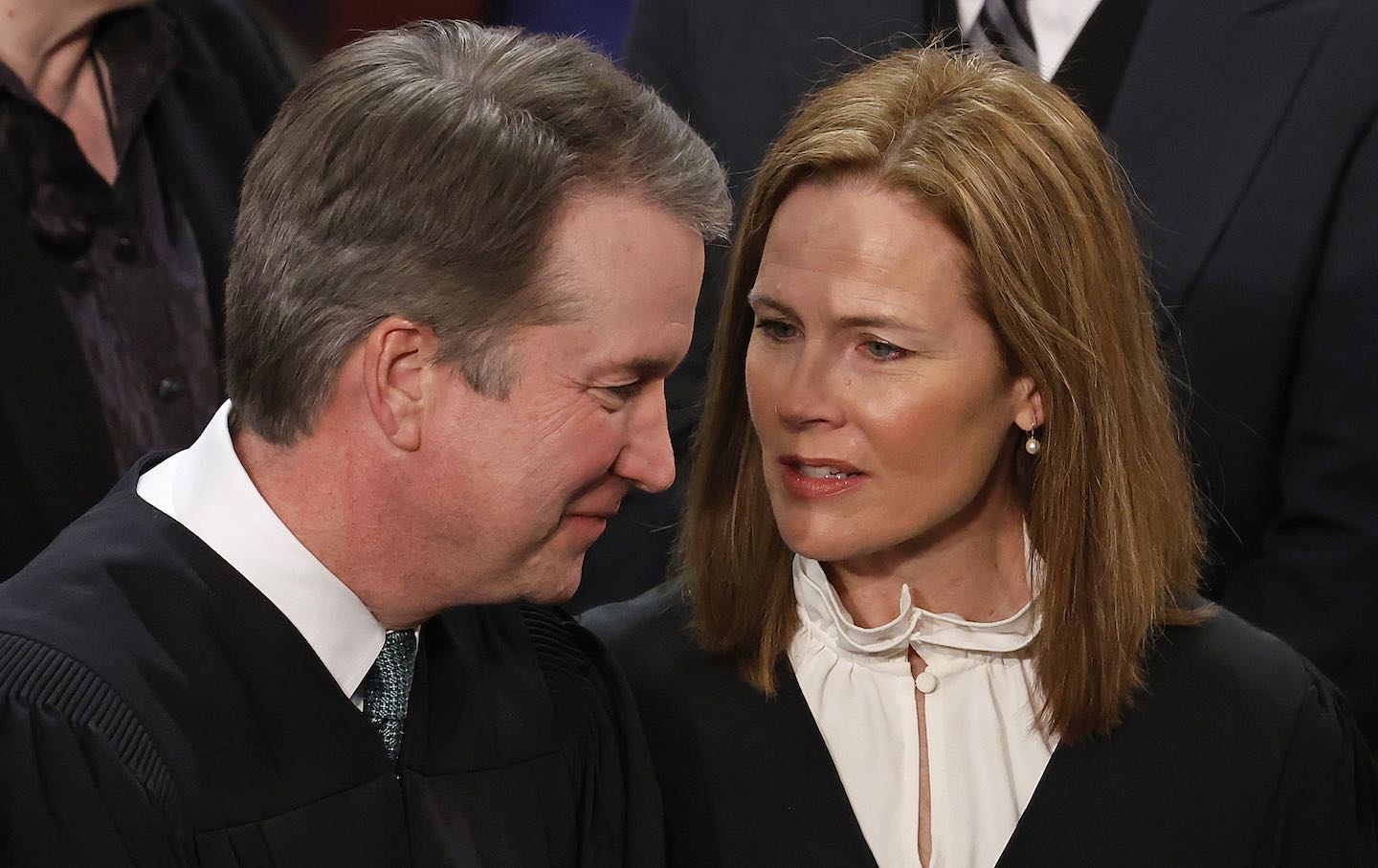
After a Supreme Court ruling reversed a stay on the controversial SB 4 bill, the Fifth Circuit Court of Appeals promptly reinstated it.
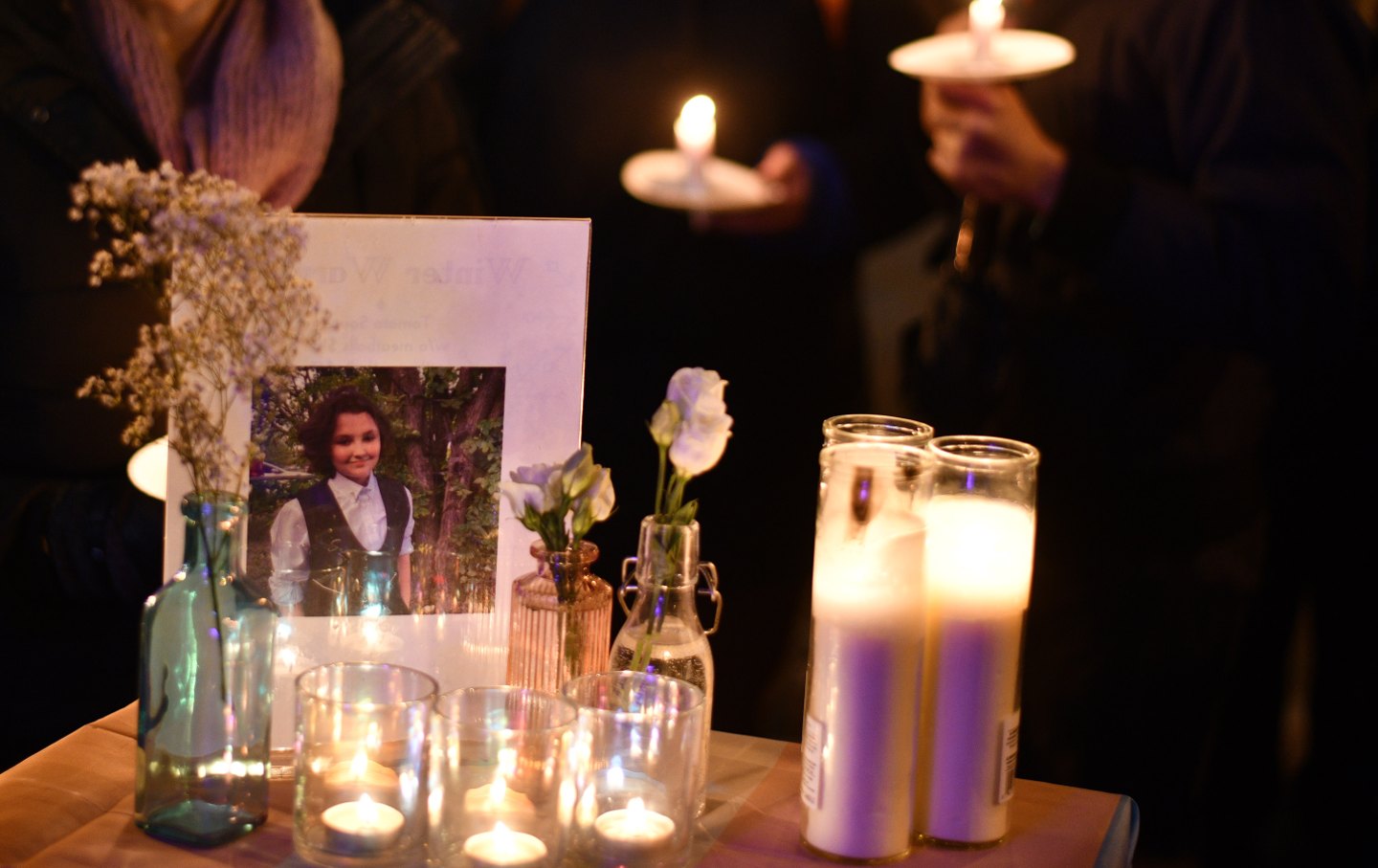
The death of a trans teen catapulted Owasso into national debates about trans rights. But the Oklahoma town’s queer community has been at the center of controversy before.

FIFA has chosen to say nothing while Israel massacres Palestinian soccer players, coaches, and sports officials.
[ad_2]
Source link






